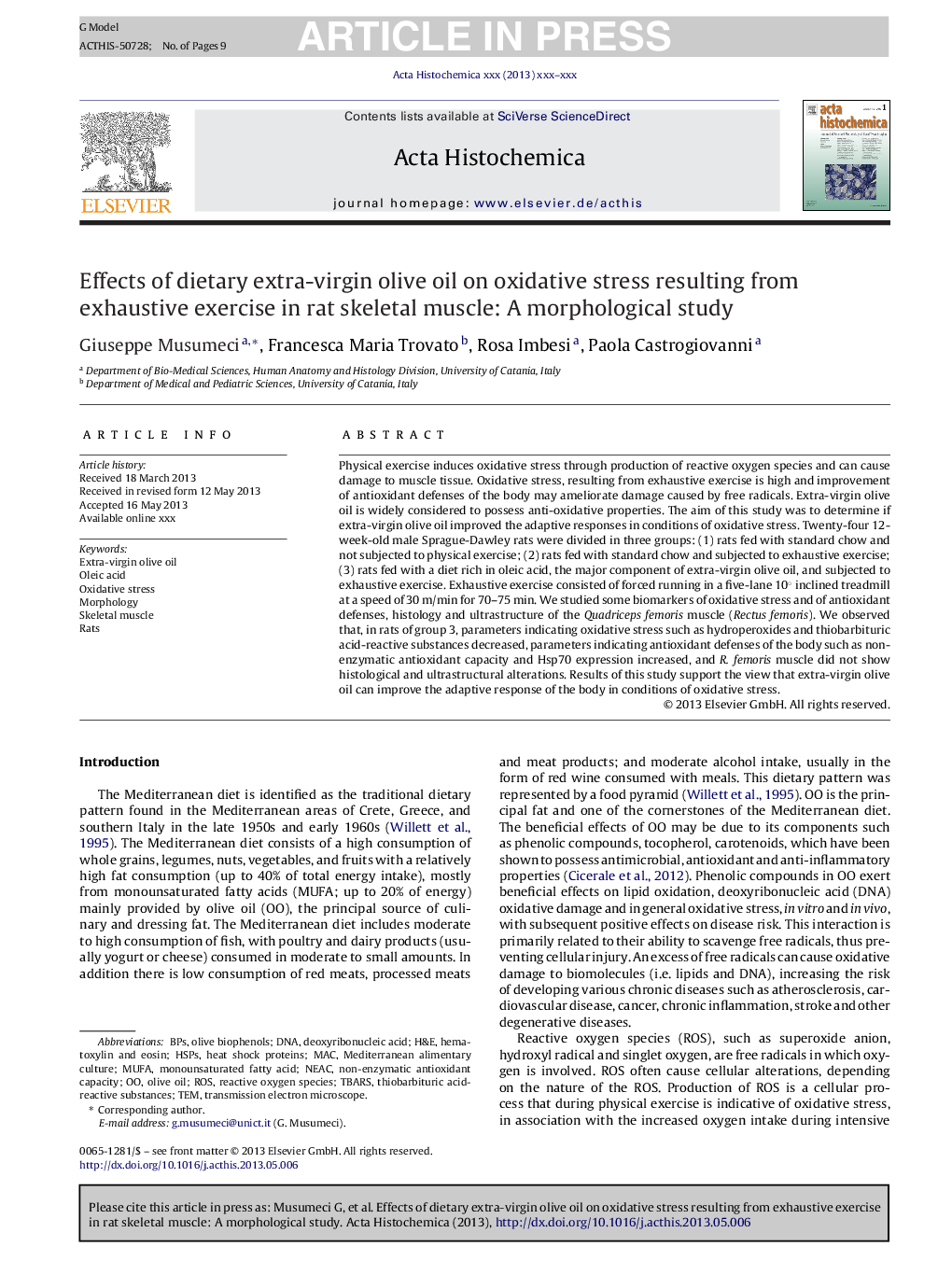| Article ID | Journal | Published Year | Pages | File Type |
|---|---|---|---|---|
| 10747186 | Acta Histochemica | 2014 | 9 Pages |
Abstract
Physical exercise induces oxidative stress through production of reactive oxygen species and can cause damage to muscle tissue. Oxidative stress, resulting from exhaustive exercise is high and improvement of antioxidant defenses of the body may ameliorate damage caused by free radicals. Extra-virgin olive oil is widely considered to possess anti-oxidative properties. The aim of this study was to determine if extra-virgin olive oil improved the adaptive responses in conditions of oxidative stress. Twenty-four 12-week-old male Sprague-Dawley rats were divided in three groups: (1) rats fed with standard chow and not subjected to physical exercise; (2) rats fed with standard chow and subjected to exhaustive exercise; (3) rats fed with a diet rich in oleic acid, the major component of extra-virgin olive oil, and subjected to exhaustive exercise. Exhaustive exercise consisted of forced running in a five-lane 10° inclined treadmill at a speed of 30 m/min for 70-75 min. We studied some biomarkers of oxidative stress and of antioxidant defenses, histology and ultrastructure of the Quadriceps femoris muscle (Rectus femoris). We observed that, in rats of group 3, parameters indicating oxidative stress such as hydroperoxides and thiobarbituric acid-reactive substances decreased, parameters indicating antioxidant defenses of the body such as non-enzymatic antioxidant capacity and Hsp70 expression increased, and R. femoris muscle did not show histological and ultrastructural alterations. Results of this study support the view that extra-virgin olive oil can improve the adaptive response of the body in conditions of oxidative stress.
Keywords
Related Topics
Life Sciences
Biochemistry, Genetics and Molecular Biology
Biochemistry
Authors
Giuseppe Musumeci, Francesca Maria Trovato, Rosa Imbesi, Paola Castrogiovanni,
